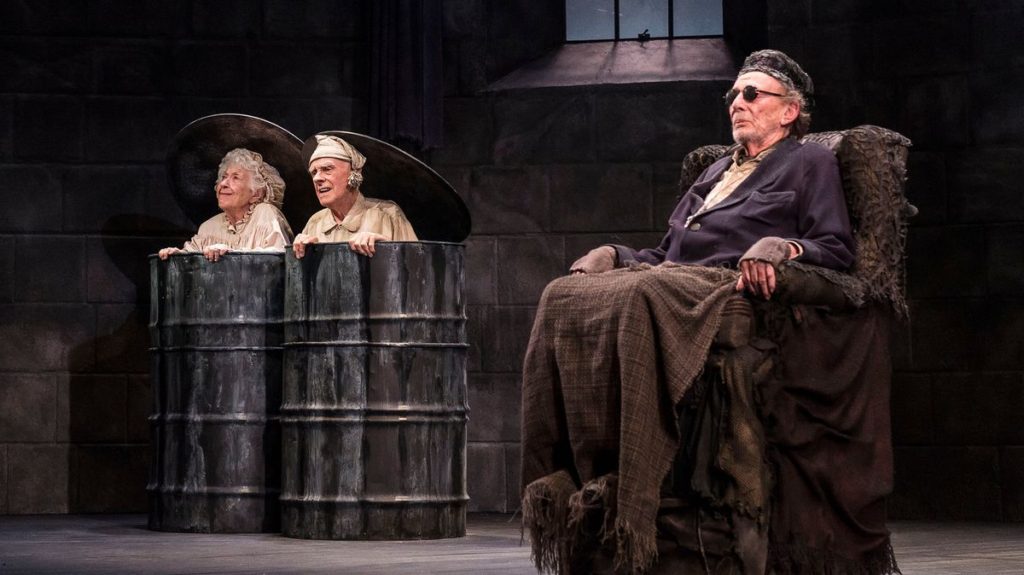
Friday
When assuring my English majors that they will find jobs in the world beyond college, I sometimes point out that they are experts in narrative. Increasingly we are learning how much we process reality through stories, and political operatives talk ceaselessly about “controlling the narrative.” How you organize facts (or for that matter, lies) influences what people will see and what meanings they will take away.
The New Yorker’s Jeffrey Toobin recently mused upon the narrative that will arise from the Mueller investigation. He concludes that it will be different than the Watergate narrative:
To date, Mueller’s court filings have created a narrative that, although compelling, is distinctly postmodern in its sensibility. Individual stories often head in different directions and only sometimes intersect. The Russians helped Trump, and the Trump people lied about the Russians. But why did so many people lie to Mueller and the other investigators? Were they lying to cover up crimes—or were they lying simply because they are liars? The Watergate scandal was like Shakespeare—a drama that built to a satisfying climax. The Russia story is more like Beckett—a mystifying tragicomedy that may drift into irresolution. Did Trump collude, and did he obstruct justice? Mueller may never have the answers.
Let’s examine this further. In Shakespeare’s tragedies, a particular action leads to increasing complications, with things getting worse and worse until the stage is strewn with bodies. Macbeth kills Duncan, which opens the door to a string of murders, including of Macbeth’s best friend. Lear makes a selfish decision, and by the end of the play half the cast is dead. Claudius unleashes a similar deluge by killing Hamlet, Sr., who then informs his son of the fact.
In each of these dramas, however, there is some kind of resolution. McDuff restores order, Edgar will reunite the fractured kingdom (or so it seems), Fortinbras will clean up the mess.
With Watergate, Nixon initiated a cover-up, which led to a string of firings and high drama, but ultimately constitutional democracy prevailed. If the Trump drama were to follow this narrative, we would start with collusion and the firing of James Comey, move on to the appointment of Mueller, and conclude with the triumph of justice. We would see Henry Tudor prevailing over Richard III, who bellows out, “A pardon, a pardon, my kingdom for a pardon,” before going down on a modern Bosworth Field.
But what if the narrative is more Waiting for Godot. Godot, of course, never shows up, and if you think of him as God or some kind of transcendent meaning, you understand why the play is the theater of the absurd’s most representative example. I think of a recent NPR story about Mitchell Tender, a World War II veteran who recently died and whose son recounted the following story:
“It just was quiet for a little while,” Walter Tendler told the news outlet, “and then he just sits up in bed halfway and looks at me and he goes, ‘S***, I’m not going to see the Mueller report, am I?’ And that was really the last coherent thing that he said.”
The messenger who assures Vladimir and Estragon that Godot will be showing up is like those who have been assuring us that the report will be released any day now:
VLADIMIR: You have a message from Mr. Godot.
BOY: Yes Sir.
VLADIMIR: He won’t come this evening.
BOY: No Sir.
VLADIMIR: But he’ll come tomorrow.
BOY: Yes Sir.
VLADIMIR: Without fail.
BOY: Yes Sir
The play ends a little later with Vladimir and Estragon deciding to move on but then not moving on:
VLADIMIR: Well? Shall we go?
ESTRAGON: Yes, let’s go.
(They do not move.)
To be sure, we assume that the Mueller report will in fact be completed. But what if the attorney general decides to keep it hidden? (I suspect the American public will not accept such a Beckett ending.) Or what if Mueller hints at possibilities but isn’t able to assert anything definitively. In that case we may need to find a new kind of resolve in order to “go on.” I have in mind the ending of The Unnamable:
…where I am, I don’t know, I’ll never know, in the silence you don’t know, you must go on, I can’t go on, I’ll go on.
There’s also this line from Worstward Ho!, which my Slovenian friend Mladen Dolar alerted me to:
All of old. Nothing else ever. Ever tried. Ever failed. No matter. Try again. Fail again. Fail better.
Although Toobin tells us we want Shakespeare, I suspect we really want Arthur Conan Doyle. Right now we see plenty of Russian and American dots, we await the genius detective that will connect them. We want Mueller to be our Sherlock:
“They say that genius is an infinite capacity for taking pains,” he remarked with a smile. “It’s a very bad definition, but it does apply to detective work.”
But what if we get no more than what we’ve known all along—which is that Trump rooted for the Russians to intervene and the Russians did so and Trump won and Trump goes on being Trump and nothing changes? In that case, we are in the position of the characters in Endgame, who long for a resolution but never get one:
The end is in the beginning and yet you go on.
Although Beckett has his fans, most Americans prefer classic theater to theater of the absurd. If Trump prevails, our aesthetic sensibilities will be sorely tested.

